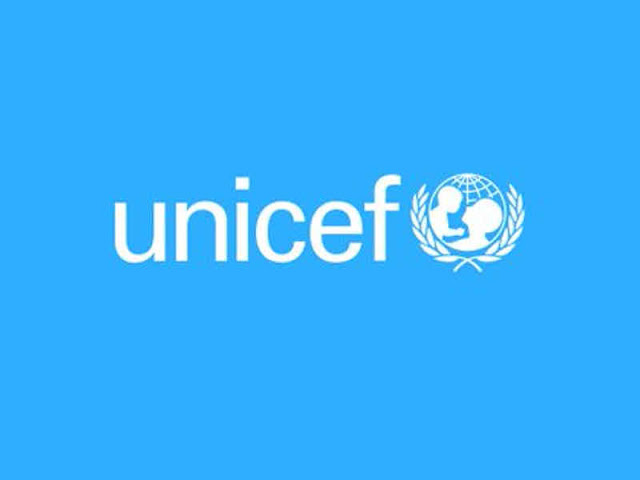UNICEF Needs Nearly $4 Billion to Help 73 Million People
 WASHINGTON, LELEMUKU.COM - The U.N. Children’s Fund is launching its largest-ever appeal for $3.9 billion in life-saving assistance for 73 million people, including 41 million children affected by conflict, natural disasters and other emergencies in 59 countries.
WASHINGTON, LELEMUKU.COM - The U.N. Children’s Fund is launching its largest-ever appeal for $3.9 billion in life-saving assistance for 73 million people, including 41 million children affected by conflict, natural disasters and other emergencies in 59 countries.This year marks the 30th anniversary of the Convention on the Rights of the Child. The U.N. Children’s Fund says 2019 also marks a year of heightened conflict, with more countries at war than at any time in the past three decades.
Among the greatest victims are more than 34 million children affected by conflict or disaster. UNICEF says they are suffering horrific levels of violence, deprivation and trauma with little access to protection and life-saving assistance.
UNICEF Director of Emergency Operations Manuel Fontaine says 88 percent of this year’s appeal is for humanitarian crises driven by conflict. He says the single biggest operation is to help Syrian refugees, the largest displacement crisis in the world, and the host communities in five neighboring countries of asylum.
“The 2nd largest appeal is for Yemen, which over the past year has seen conditions, unfortunately, that were already catastrophic for children get even worse, if that is possible" Fontaine said. "Eight out of 10 children, which is over 11 million, now require humanitarian assistance in Yemen.”
UNICEF’s biggest operations traditionally have been in Africa. But this year the Democratic Republic of Congo places third, followed by Syria and South Sudan.
Fontaine says Africa unfortunately is the continent with the biggest gap in funding. He tells VOA African countries are not getting the attention they need, and that has serious consequences for humanitarian operations.
“In a country like Cameroon, which is one of the countries for which we have concerns, particularly in northwest and southwest region at the moment. We had aimed to immunize 61,000 children against measles and because of lack of resources, we could only immunize a bit more than 2,000," Fontaine said. "So, obviously, we are far behind what we need to do.”
Fontaine says UNICEF has had to drastically cut back services for gender-based violence in Central African Republic because it only has received 36 percent of the money it needs. In all cases, he says funding shortfalls have very direct implications on the lives of children and women. (VOA)
Simak berbagai berita pilihan dan terkini dari Lelemuku.com di Grup Telegram Lelemuku.com. Klik link https://t.me/lelemukucom kemudian join/bergabung. Pastikan Anda sudah menginstall aplikasi Telegram di ponsel.
Lelemuku.com - Cerdaskan Anak Negeri